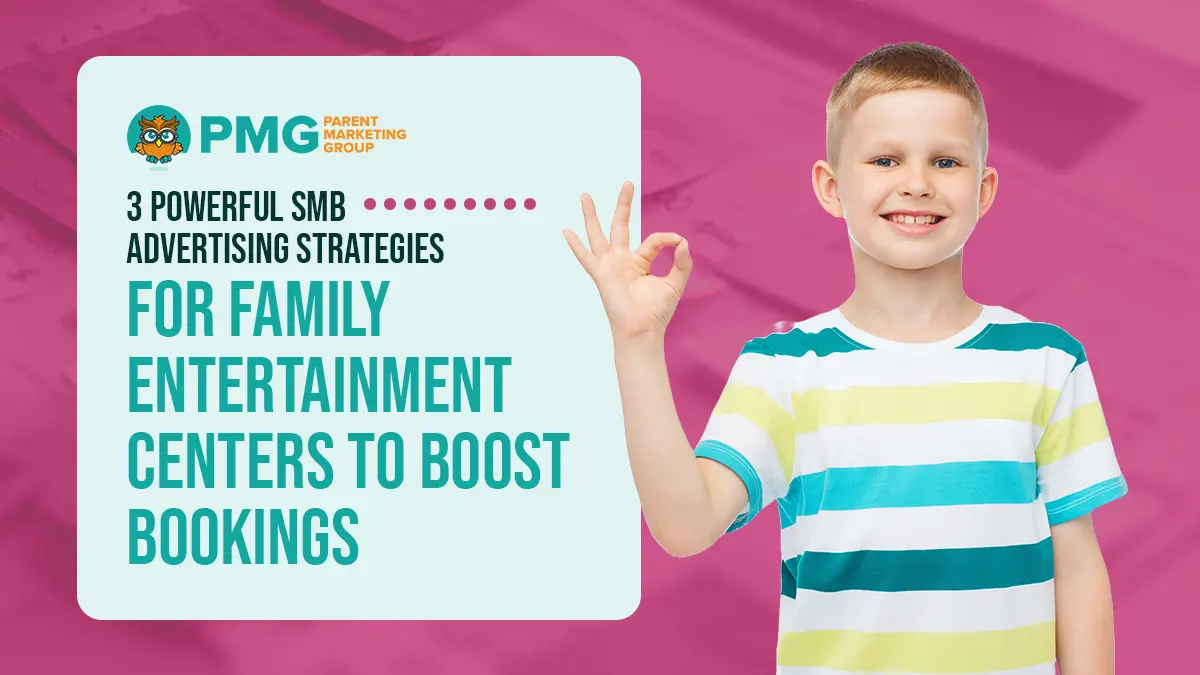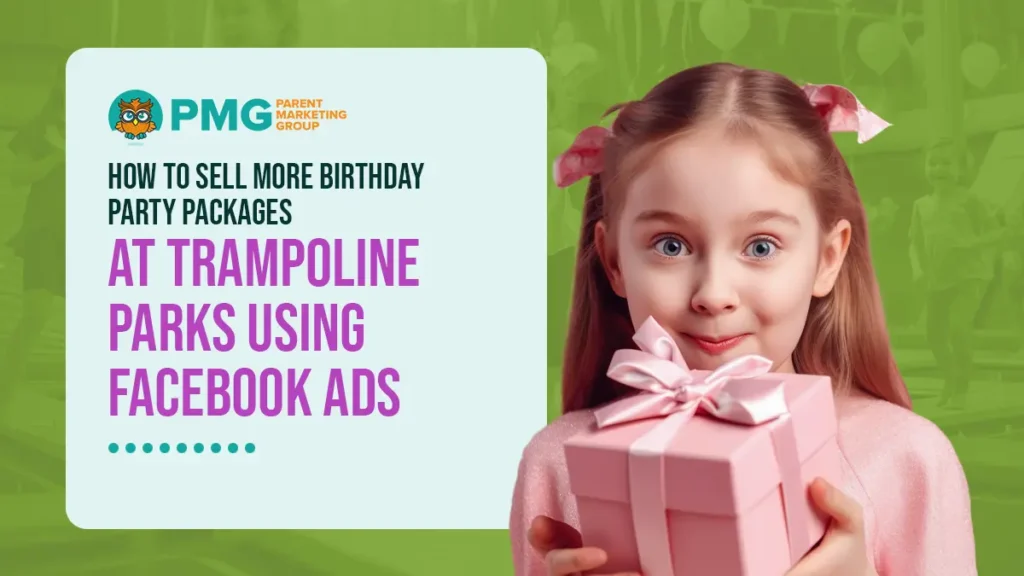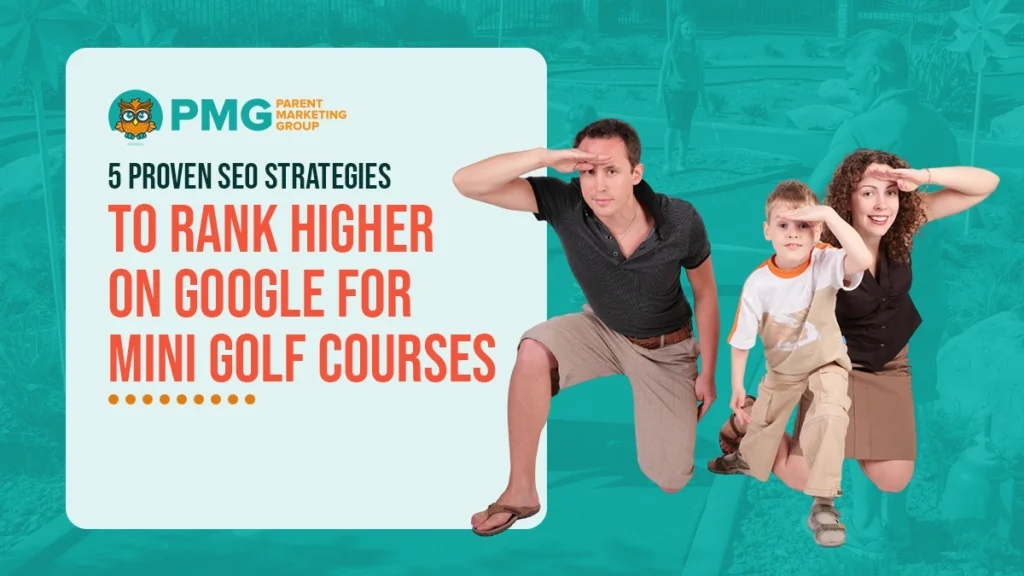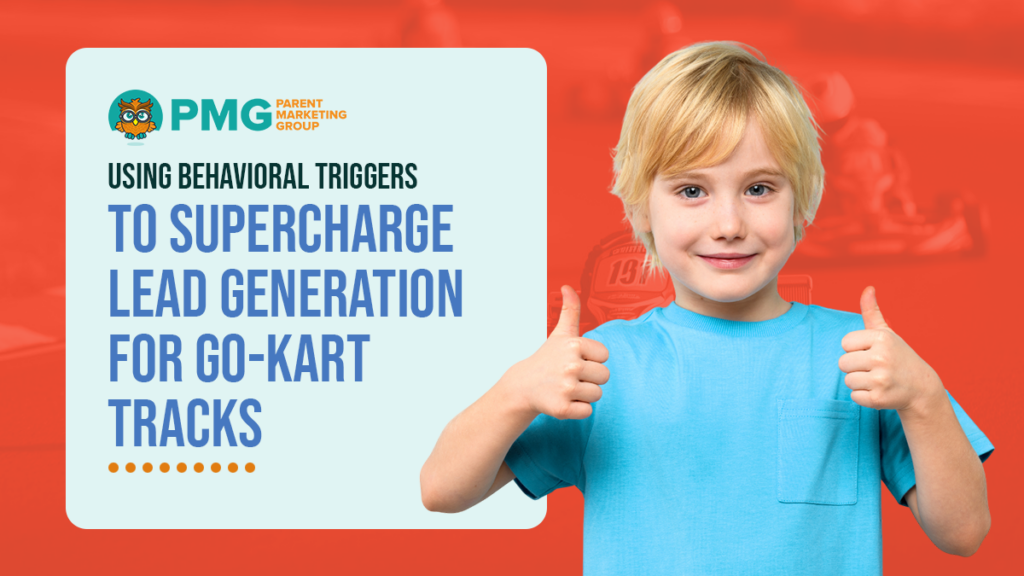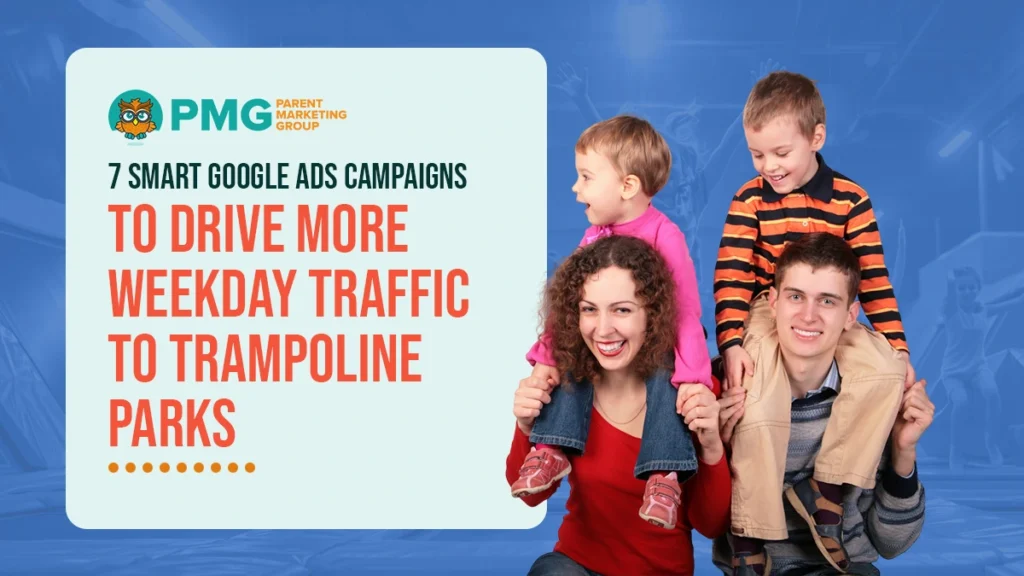SMB advertising strategies for family entertainment centers to boost bookings must do more than raise awareness—they must inspire action. In a competitive, experience-driven market, reaching families takes more than traditional ads. It requires intentional, well-timed messaging that connects with parents and engages kids.
Whether you run a trampoline park, indoor play space, or birthday party venue, your advertising efforts should reflect the energy and trust families seek. In this blog, we’ll explore three highly effective strategies tailored specifically for small to mid-sized entertainment businesses—each designed to increase visibility, drive engagement, and turn interest into bookings.
Using Email Marketing Sequences to Fill Weekday Slots
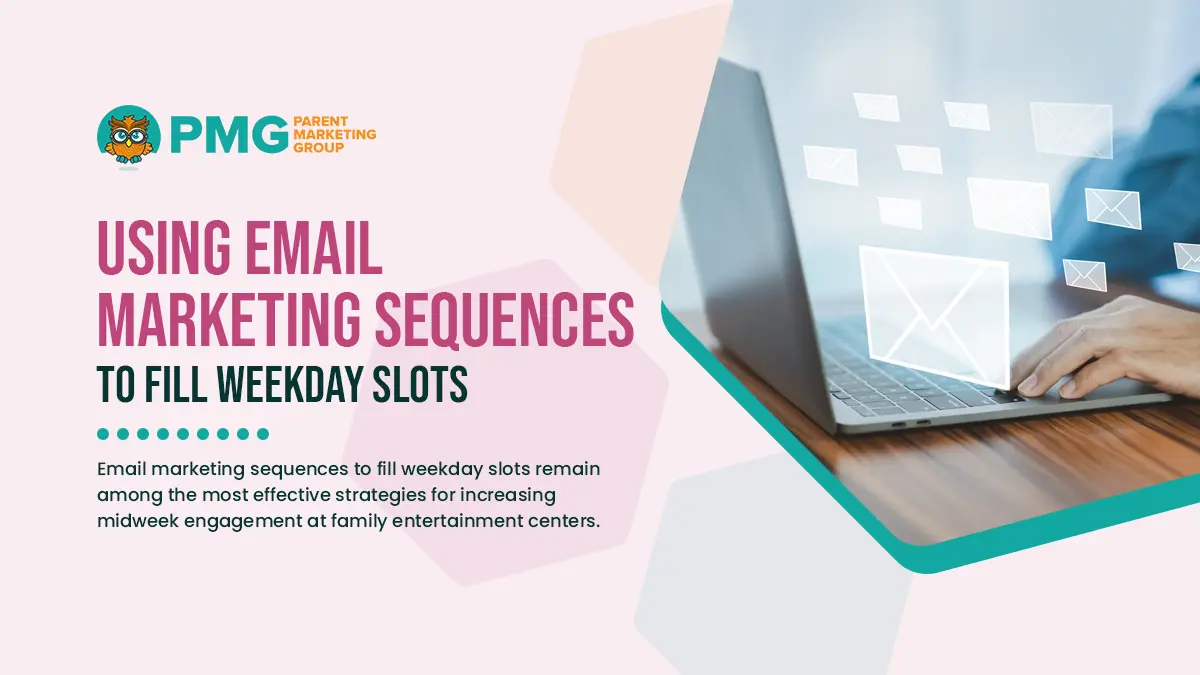
Email marketing sequences to fill weekday slots remain among the most effective strategies for increasing midweek engagement at family entertainment centers. With consistent messaging, strategic targeting, and well-timed content, email can encourage repeat visits while maintaining a strong connection with your customer base.
Segmenting Your Audience for Relevance
Segmentation is foundational in developing email sequences that resonate with different family needs. Rather than sending an identical message to your entire list, segmentation ensures that the right audience receives the message based on behavior, interest, or family profile.
Standard and effective segmentation criteria include:
- Past visit patterns: Families who typically book on weekends may respond to exclusive weekday-only incentives.
- Age of children: Offers tailored to toddlers may not apply to families with teens; segmentation helps refine relevance.
- Booking history: Repeat visitors may appreciate loyalty perks, while new leads may require more introductory content.
- Event type: Families who booked birthdays might be interested in weekday group play or school holiday promotions.
Targeted content improves open and click-through rates and reinforces the value your center provides to different audience segments.
Automated Sequences That Encourage Action
Automated email sequences allow businesses to stay at the top of their minds without requiring manual follow-ups. These sequences can activate interest, remind customers of upcoming opportunities, or re-engage inactive contacts.
Consider incorporating the following into your automation workflows:
- Welcome sequences: Introduce weekday offerings to new subscribers with a clear overview and incentive.
- Re-engagement emails: Target families who haven’t visited in a while with tailored weekday deals.
- Booking reminders: For incomplete bookings or recent inquiries, send follow-ups that promote weekday availability.
- Seasonal campaigns: Use school calendars or holiday breaks to suggest timely weekday activities.
Automated workflows increase operational efficiency and create consistent touchpoints that guide families toward action.
Promoting Weekday Value Propositions Clearly
Parents require practical reasons to shift their typical weekend plans to weekdays. Your email content should focus on clear value propositions highlighting what makes weekday visits more appealing.
Effective value points to highlight include:
- Reduced crowds: Promote a quieter, more relaxed environment during weekdays.
- Exclusive weekday pricing: Offer discounted rates or bundle deals that are unavailable on weekends.
- Greater scheduling flexibility: Emphasize easier booking and more available time slots.
- Additional perks: Include complimentary add-ons such as snacks, arcade credits, or sibling discounts.
By clearly articulating these benefits, emails can shift parent mindsets and encourage midweek engagement without requiring heavy discounts or ongoing promotions.
Design and Delivery Considerations
Your emails’ presentation and delivery must be carefully optimized to support the content strategy. This includes both visual design and the technical aspects of sending campaigns.
Essential considerations for execution include:
- Mobile-friendly design: Ensure readability and ease of navigation across all devices.
- Clear calls-to-action (CTAs): Buttons or links should lead directly to a booking page or offer details.
- Send timing: Aim for early weekday mornings when parents are most likely checking emails.
- Consistent branding: Maintain visual and tonal consistency to build familiarity and trust.
Attention to these details improves the overall effectiveness of your campaign and supports long-term customer engagement.
Targeted Local Advertising That Drives Real-World Foot Traffic
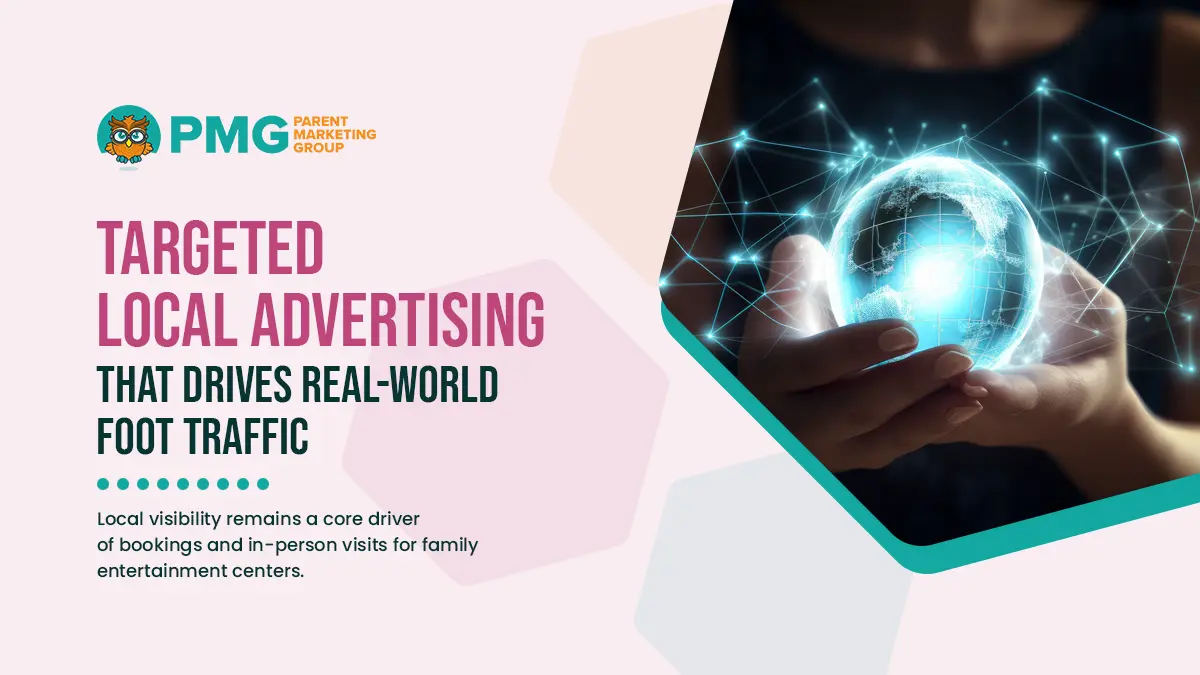
Local visibility remains a core driver of bookings and in-person visits for family entertainment centers. While digital reach is essential, focused local advertising connects your business with nearby families most likely to visit—especially during key windows such as weekends, school breaks, and holidays. Small to mid-sized businesses can significantly increase foot traffic and bookings by combining geo-targeted digital efforts with community-based outreach.
Leveraging Geo-Targeted Digital Ads
Geo-targeting enables businesses to serve digital ads specifically to users in defined geographic areas. This is particularly beneficial for promoting time-sensitive offers, new programs, or weekday availability to families within a practical driving distance.
Effective geo-targeting methods include:
- Facebook and Instagram Ads: Use detailed location targeting to ZIP codes or a radius around your center.
- Google Local Campaigns: These appear on maps, YouTube, and searches when families actively seek nearby entertainment options.
- Waze Ads: These ads capture attention through navigational apps by appearing on the route to school, sports, or grocery runs.
- Mobile app targeting: Deliver ads via family-focused apps used by local parents (e.g., weather apps, parenting forums).
These platforms allow for granular targeting by location, interest, and family status, helping ensure your message reaches the right local audience.
Building Relationships with Nearby Schools and Programs
Partnerships with local institutions can be a powerful source of referrals and brand exposure. These efforts often require minimal financial investment and offer direct access to trusted parent networks.
Valuable partnership opportunities include:
- Flyer distribution: Place branded materials in school folders, libraries, or local preschools with permission.
- Sponsored events: Support school fairs, field days, or after-school programs in exchange for visibility.
- Teacher incentives: Offer staff discounts or referral rewards to educators who promote your center.
- Cross-promotions: Collaborate with music classes, swim schools, or sports teams to co-promote events or family deals.
Establishing a presence within local institutions positions your business as a family-friendly staple in the community.
Utilizing Local Influencers and Parent Networks
Local influencers offer high-trust, high-visibility access to engaged parent audiences. Micro-influencers—those with smaller, highly engaged followings—are particularly effective in regional markets, where authenticity matters more than follower count.
To optimize this strategy:
- Identify trusted voices: Focus on local parents active in Facebook groups, parenting blogs, or community events.
- Offer experience-based promotions: Invite influencers to try your services with their children and share their experiences.
- Create referral codes: Encourage influencers to offer exclusive discounts to their followers.
- Share user-generated content: Repurpose influencer photos or reviews (with permission) to boost ad credibility.
These efforts help humanize your business, extend your reach, and build brand trust—especially among busy parents seeking reliable recommendations.
Reinforcing Visibility Through Local Listings and Reviews
Local search remains a critical decision-making factor for families seeking entertainment options. Maintaining strong visibility and reputation across review platforms supports your advertising strategy and boosts walk-in traffic.
Core local listing strategies include:
- Claim and optimize your Google Business Profile: Include hours, photos, and service details.
- Encourage parent reviews: Prompt happy customers to leave feedback on Google, Yelp, and Facebook.
- Respond professionally: Acknowledge reviews (positive and negative) to show responsiveness.
- List of family directories: Use platforms like Hulafrog or Macaroni Kid to increase exposure.
Strong local visibility and targeted advertising form a complete ecosystem that moves families from awareness to action.
Promotional Packages and Offers That Speak to Busy Parents
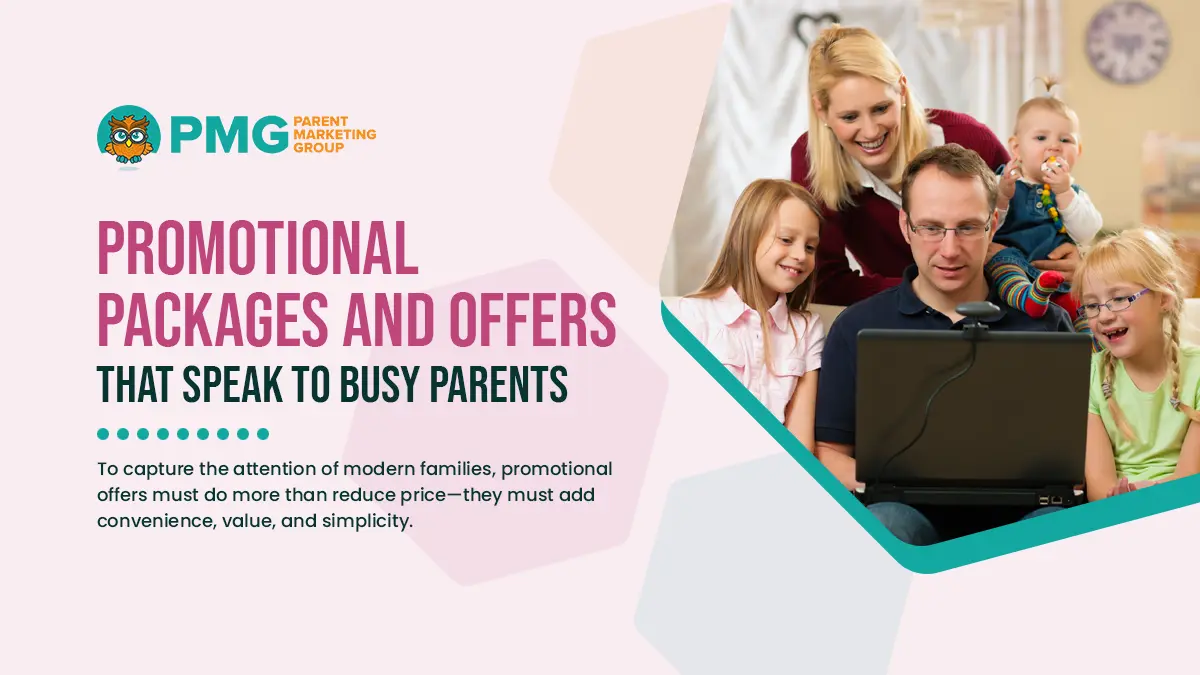
To capture the attention of modern families, promotional offers must do more than reduce price—they must add convenience, value, and simplicity. Parents often manage tight schedules and multiple responsibilities. When your promotions are designed with those realities, they are more likely to convert interest into bookings. Clear messaging, practical benefits, and ease of use are key components in any successful offer targeted at families.
Designing Offers Convenience and Flexibility
Parents are more likely to respond to offers that eliminate stress and streamline decision-making. Whether through all-inclusive packages or customizable options, convenience is a driving factor behind their purchasing behavior.
Examples of effective convenience-focused offers include:
- All-in-one party packages: Include food, entertainment, setup, and cleanup to save parents time and effort.
- Flexible time slots: Provide booking options during non-peak hours or after school to fit busy schedules.
- Quick-book deals: Create limited-time online discounts with simplified booking processes.
- Multi-visit passes: Offer punch cards or bundles for frequent visitors, reducing the need to book repeatedly.
These offers reduce friction in the decision-making process and demonstrate that your business understands the demands of family life.
Highlighting Value Over Deep Discounts
While discounts can be effective, many parents are more motivated by perceived value—especially when the offer enhances their family’s experience. Highlighting the added benefits of a promotion is often more compelling than simply lowering the price.
Ways to build perceived value include:
- Bonus add-ons: Offer a free snack, arcade credit, or parent coffee with each booking.
- Exclusive weekday perks: Promote quieter playtime or smaller groups as a benefit of visiting midweek.
- Sibling savings: Extend discounts to multiple children in a family to make group outings more affordable.
- Loyalty rewards: Recognize repeat customers with points or exclusive early access to special events.
When communicated effectively, these promotions shift the focus from cost to experience—positioning your center as a smart, enjoyable choice.
Creating Urgency Without Pressure
Urgency can be a useful tool to prompt action, but it should be balanced with a respectful tone that aligns with parents’ decision-making process. Messaging should encourage booking without creating unnecessary pressure.
Effective urgency strategies include:
- Seasonal promotions: Tie offers to school breaks, holidays, or back-to-school events to encourage timely bookings.
- Limited availability messaging: Highlight that popular time slots or events fill quickly.
- Countdown emails or banners: Use gentle visual reminders on your website or in email campaigns.
- Early-bird pricing: Reward families who plan with special rates or added benefits.
This approach supports families in planning while motivating action within a defined window.
Promoting Offers Through Targeted Channels
Even the best offer needs proper visibility. Tailor your promotional delivery methods to the channels parents trust and use most frequently.
Recommended outreach strategies include:
- Email campaigns: Target segmented audiences with specific offers based on past behavior.
- Social media ads: Promote time-sensitive deals with engaging visuals and clear calls to action.
- In-center signage: Reinforce current promotions to existing customers during visits.
- Parent-focused platforms: Increase reach by listing offers on local directories or parenting networks.
Strategically crafted and communicated offers show parents that your business respects their time, priorities, and need for reliable, enjoyable experiences.
Conclusion
For family entertainment centers, the right advertising strategy is more than just exposure—it’s about building genuine connections with busy parents and turning interest into bookings. By combining smart email marketing, locally focused campaigns, and value-driven promotions, small and mid-sized businesses can stand out in a busy market while staying true to what families care about most: ease, trust, and memorable experiences.
Ready to elevate your advertising and connect with more local families? Contact the experts at Parent Marketing Group or call (716) 303-4133 to start building campaigns that drive real results.

